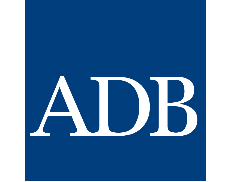Share
Print

Date Published: 09-Dec-2024
Deadline of Submitting EOI: 06-Jan-2025 04:00 PM Manila local time
Consultant Type: Firm
Selection Method: Simplified Consultants' Qualifications Selection (SCQS)
Selection Title: Sustainable Infrastructure Assistance Program Phase II - Innovative Infrastructure Financing, Infrastructure Planning, and Program Management Support (Subproject 1)
Package Name: Design Reference for Sustainable and Resilient Infrastructure for Jakarta MRT East-West Line
Engagement Period: 6MONTH
Consulting Services Budget: USD 232,760
Source: International
Technical Proposal: Single-Stage Proposal (SSP)
Approval Number: 9778
Approval Date: 23-Jul-2019
Country of assignment: Indonesia
Primary Expertise: Sustainable and Resilient Infrastructure
Objective and Purpose of the Assignment
The objective of this assignment is to develop a comprehensive "Design Reference for Sustainable and Resilient Infrastructure" for the Jakarta MRT East-West Line, which will provide a systematic framework and guidelines for the planning, design, and construction phases of the project. The design reference complements the Transit Facility Guideline that was completed and circulated in 2023, financed by ADB under the same technical assistance project.
The purpose of the design reference is to ensure that the infrastructure development for the Jakarta MRT East-West Line aligns with sustainability and resilience principles by integrating environmental, social, and economic considerations into the design process. The design reference aims to: 1. Enhance environmental sustainability by minimizing resource consumption, reducing carbon emissions, and promoting eco-friendly practices throughout the lifecycle of the MRT Jakarta infrastructure; 2. Improve MRT Jakarta infrastructure resilience against natural disasters and climate change impacts, such as floods, earthquakes, and extreme weather events, through robust design strategies and risk mitigation and adaptation measures; 3. Foster social inclusivity and equity by prioritizing the infrastructure’s accessibility, safety, and usability for all members of the community, including women, kids, elderly people, and persons with disabilities; 4. Optimize economic efficiency by maximizing the long-term value and performance of the MRT Jakarta infrastructure, while minimizing lifecycle costs and enhancing asset longevity; and 5. Establish standards for sustainable and resilient infrastructure development, serving as a reference model for future MRT projects and urban infrastructure initiatives in Jakarta and beyond.